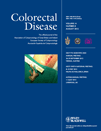Learning the hard way: the importance of accurate data
Abstract
Aim The outcome of surgery for colorectal cancer in each unit in the UK is collated by the National Bowel Cancer Audit Project (NBOCAP). In 2008–2009 our unit had a raw 30-day postoperative mortality close to the national average, but when it was nationally adjusted it appeared to be an outlier. The purpose of this study was to identify reasons for this disparity.
Method All records were obtained for patients undergoing surgery for colorectal cancer over the 2 years. Data submitted to NBOCAP to determine adjusted rates were compared with actual data.
Results There were major discordances between submitted and actual data for American Society of Anesthesiology grades and timing of surgery. This explained why the unit appeared to be an outlier.
Conclusion There is increasing emphasis on outcome of health service delivery, which has important implications. Submission of correct data is essential if objective comparison is to be made on which to base decisions on service delivery among units and within health regions.




